Are you considering an arbitration agreement for your business or organization? Establishing a clear and mutually beneficial arbitration process can save both time and resources in the event of disputes. In this article, we'll guide you through a comprehensive letter template that ensures your arbitration proposal is professional and effective. So, if you're ready to create a solid foundation for conflict resolution, keep reading!

Clear definition of the parties involved
In the context of formal arbitration agreements, clear definition of the parties involved is crucial for establishing responsibility and ensuring that all parties understand their roles. The "Claimant," typically the individual or entity filing the arbitration (often a business party such as Company A, incorporated in Delaware), represents the party seeking remedy or resolution. The "Respondent," conversely, is the individual or entity responding to the claim (for instance, Company B, operating in California), who may be defending against the claims or seeking a counterclaim. This clarity delineates the framework in which the arbitration will occur, fostering a better understanding of obligations, rights, and procedural expectations as outlined in the American Arbitration Association guidelines. Clear definitions help mitigate potential disputes regarding jurisdiction and the scope of the arbitration process, essential for successful conflict resolution and upholding the integrity of the arbitration agreement.
Scope of the arbitration process
The arbitration process aims to provide a structured resolution mechanism for disputes arising between parties engaged in commercial transactions, such as those outlined within a binding arbitration agreement. This process typically encompasses various stages, including initial filing of a claim, selection of arbitrators (usually experienced legal professionals with expertise in the relevant field), and the conduct of hearings, where evidence and testimonies are presented. The outcomes of the arbitration proceedings, which may take place in designated venues, such as the American Arbitration Association's facilities in New York, can result in enforceable awards based on jurisdictional laws, such as the Federal Arbitration Act. Notably, confidentiality provisions often accompany arbitration, safeguarding sensitive information from public disclosure, thus fostering a more secure environment for dispute resolution. Additionally, timelines for each stage of the arbitration process are usually predetermined, allowing for clarity and efficiency in resolving disputes.
Governing law and jurisdiction
The arbitration agreement proposal outlines the framework for dispute resolution between parties, typically governed by the laws of the jurisdiction specified within the document. Key aspects include referencing the applicable legal system, which might be the United Nations Commission on International Trade Law (UNCITRAL) model laws or specific laws from a chosen state, such as New York or London. The selected jurisdiction, often indicated by a prominent city, ensures that any arbitration proceedings occur within a defined legal landscape, facilitating enforcement of awards through established legal channels. Furthermore, the agreement may stipulate details on seat of arbitration, procedural rules, and number of arbitrators, providing clarity for parties involved in potential future disputes.
Selection and appointment of arbitrators
An arbitration agreement proposal outlines the framework for resolving disputes outside traditional court systems, emphasizing the selection and appointment of arbitrators. This critical component ensures neutrality and expertise in arbitration proceedings. The parties may agree on a specific number of arbitrators, typically one or three, depending on the complexity of the dispute. A well-defined selection process can involve nominations from industry associations or legal institutions, such as the American Arbitration Association or the London Court of International Arbitration. Deadlines for appointing arbitrators can be stipulated, ensuring timely resolution, while criteria for the arbitrators' qualifications, such as relevant qualifications or previous experience in similar cases, can bolster the agreement's integrity. Additionally, provisions addressing potential conflicts of interest and the ability to challenge arbitrator appointments may be included to further ensure the fairness and impartiality of the arbitration process.
Confidentiality and privacy terms
Arbitration agreements often include confidentiality and privacy terms to safeguard sensitive information. These terms typically stipulate that all proceedings, including evidence and discussions, remain confidential. Parties involved must agree to restrict access to any sensitive data disclosed during arbitration. For example, financial records such as profit margins or intellectual property like trade secrets must not be shared with third parties. Additionally, any documentation regarding the arbitration process, including rulings and testimonies, should be treated as private. Breach of these confidentiality terms could lead to legal repercussions. Ensuring both parties maintain discretion fosters trust and encourages open dialogue throughout the arbitration process.
Letter Template For Arbitration Agreement Proposal Samples
Letter template of arbitration agreement proposal for business partnership disputes
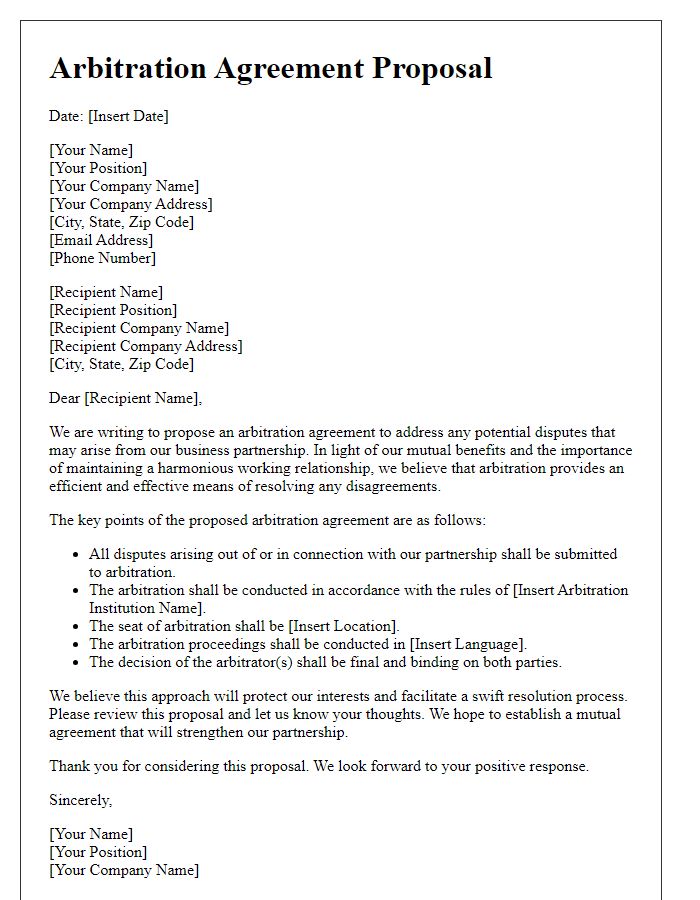
Letter template of arbitration agreement proposal for consumer agreements
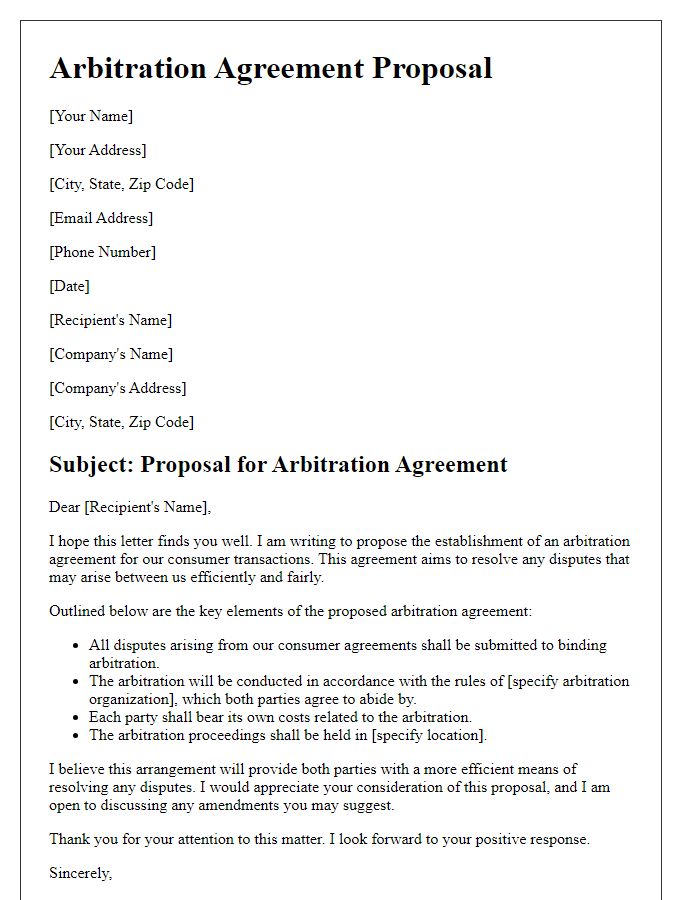
Letter template of arbitration agreement proposal for real estate transactions
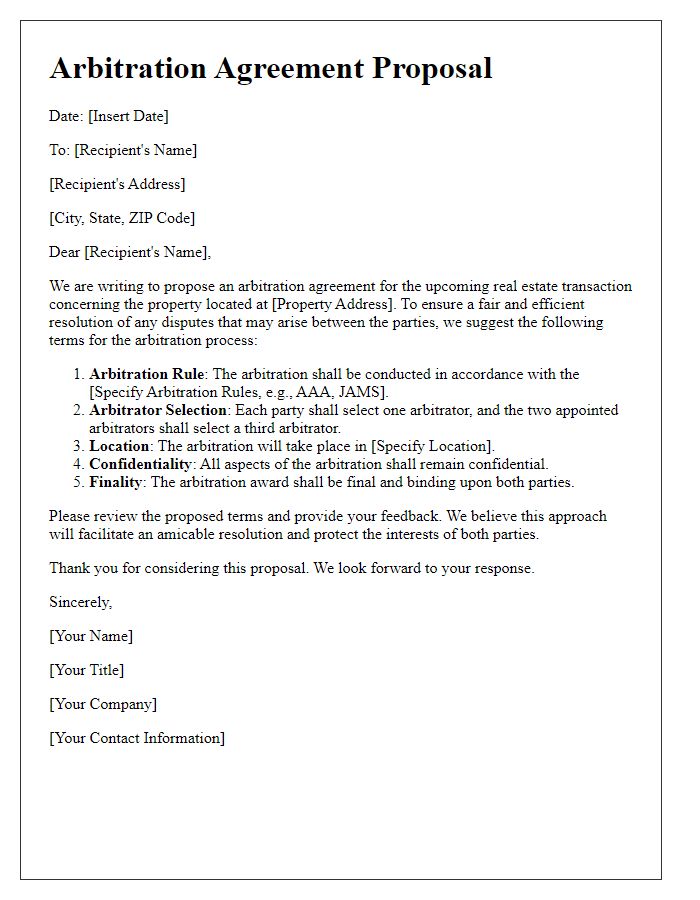
Letter template of arbitration agreement proposal for employment contracts
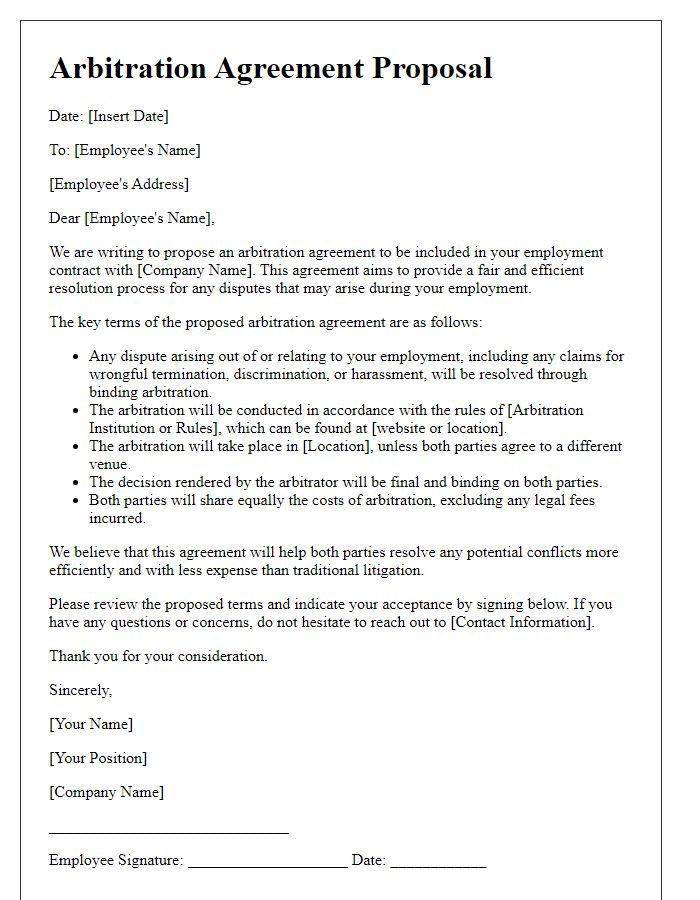
Letter template of arbitration agreement proposal for construction projects
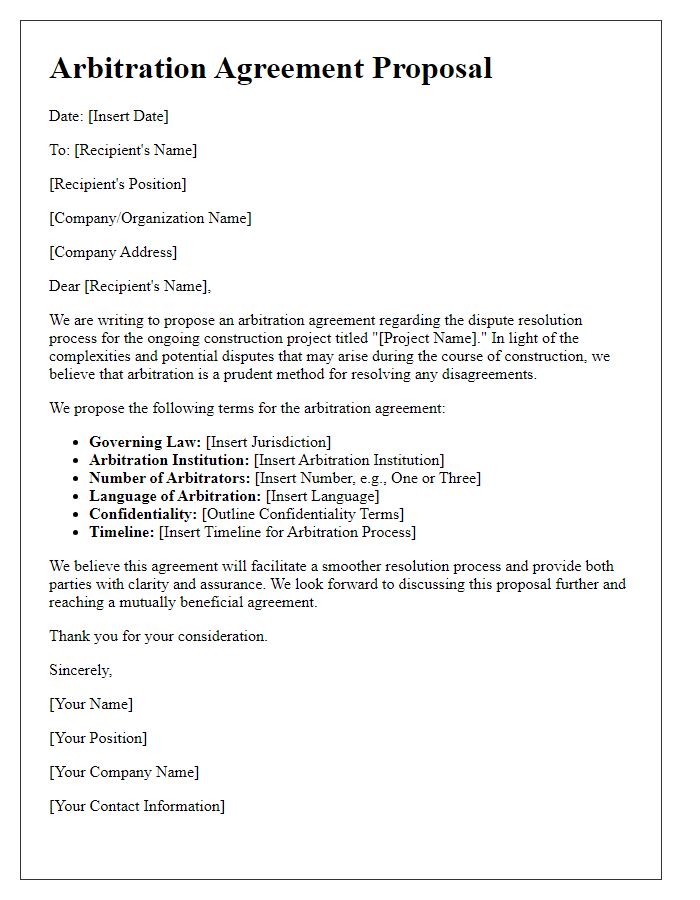
Letter template of arbitration agreement proposal for international trade disputes
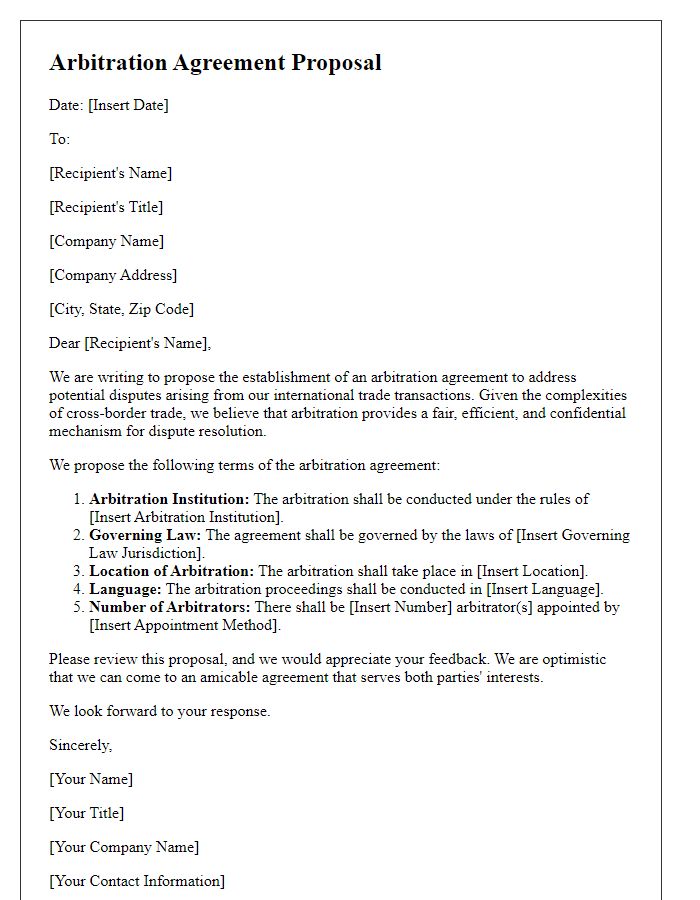
Letter template of arbitration agreement proposal for family law matters
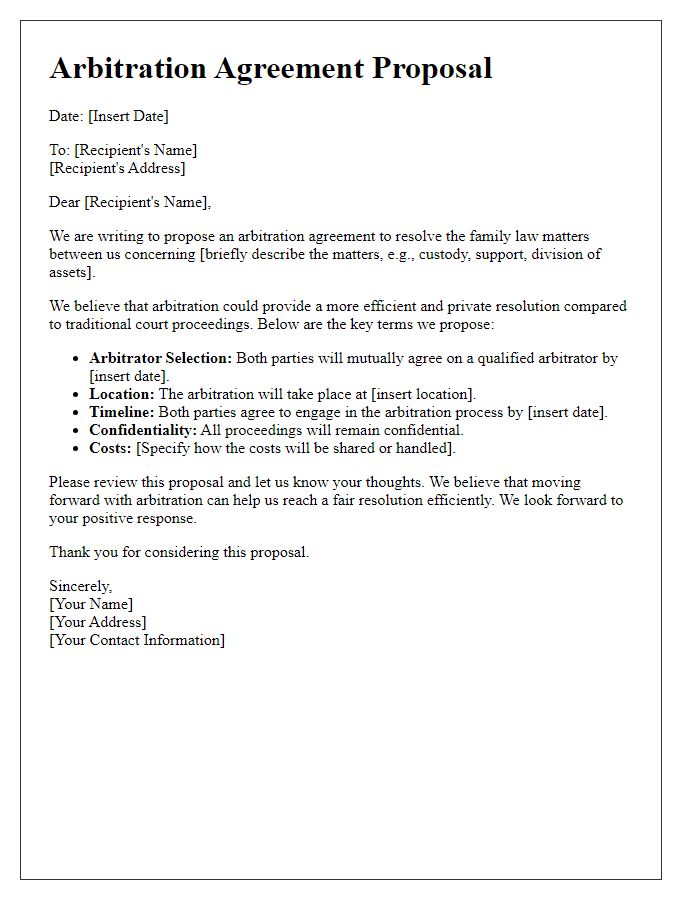
Letter template of arbitration agreement proposal for intellectual property issues
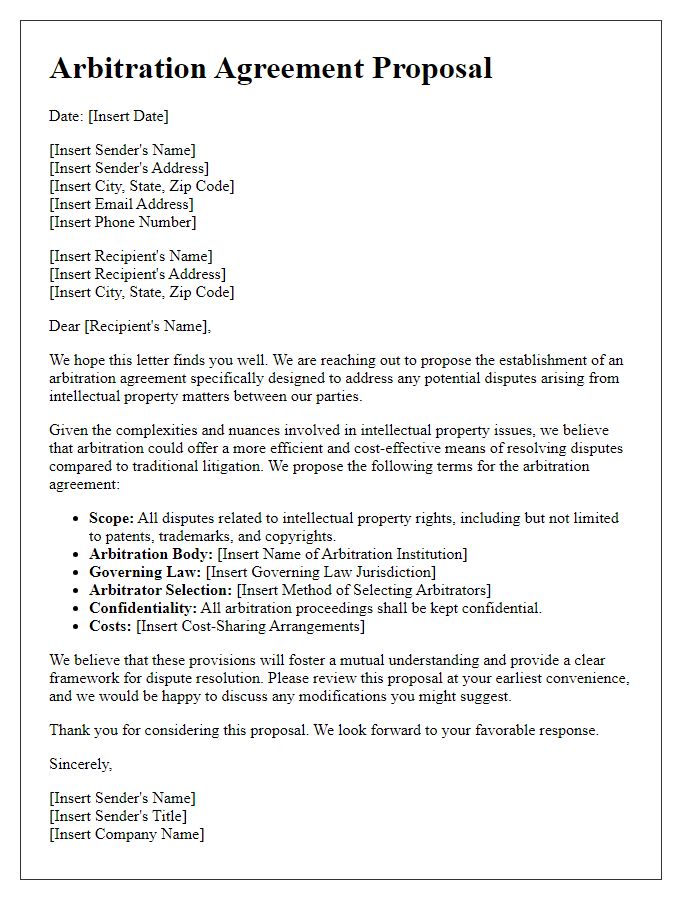

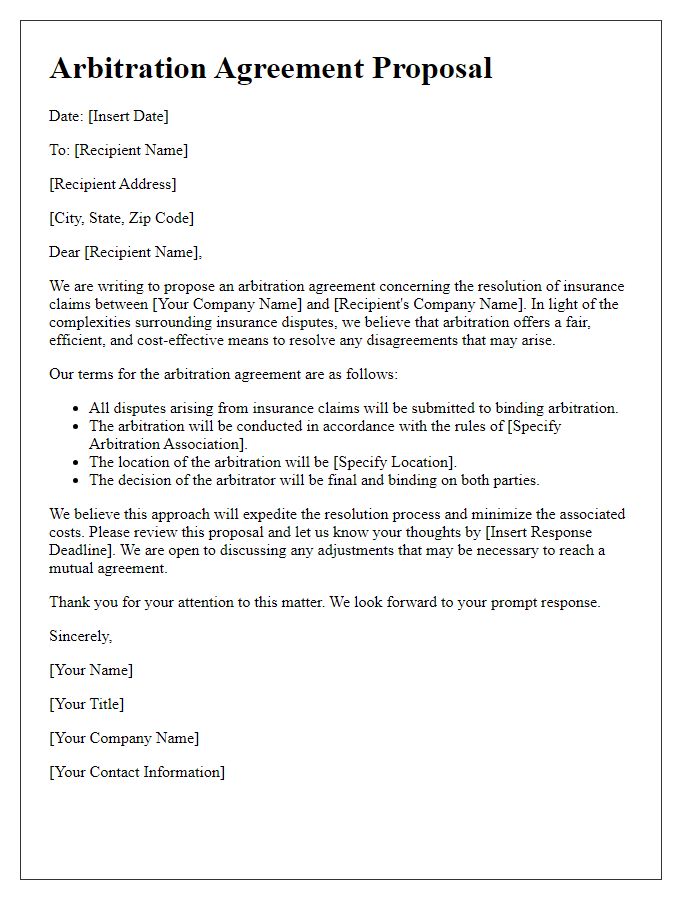
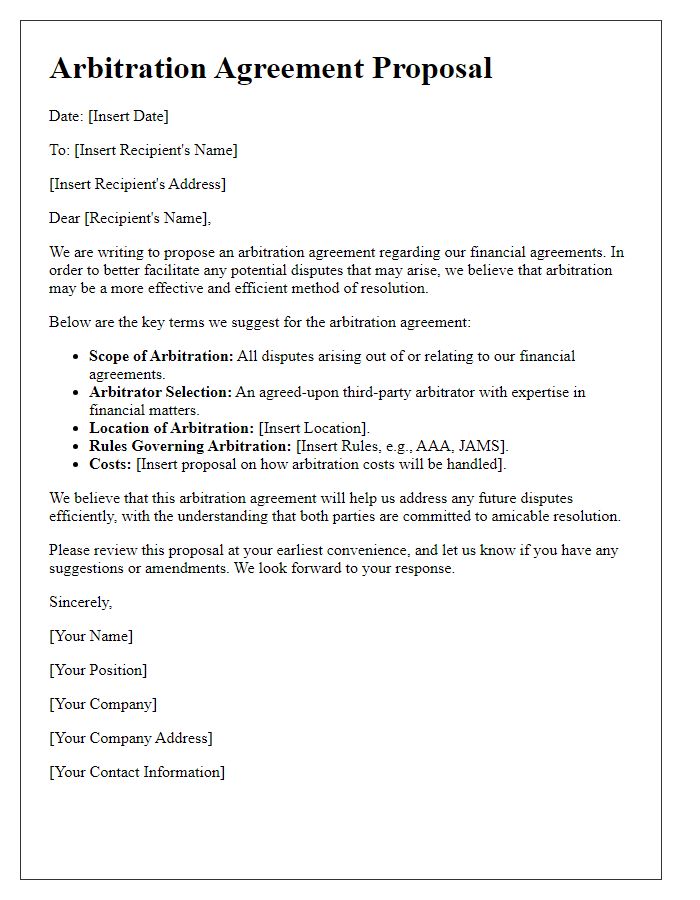


Comments